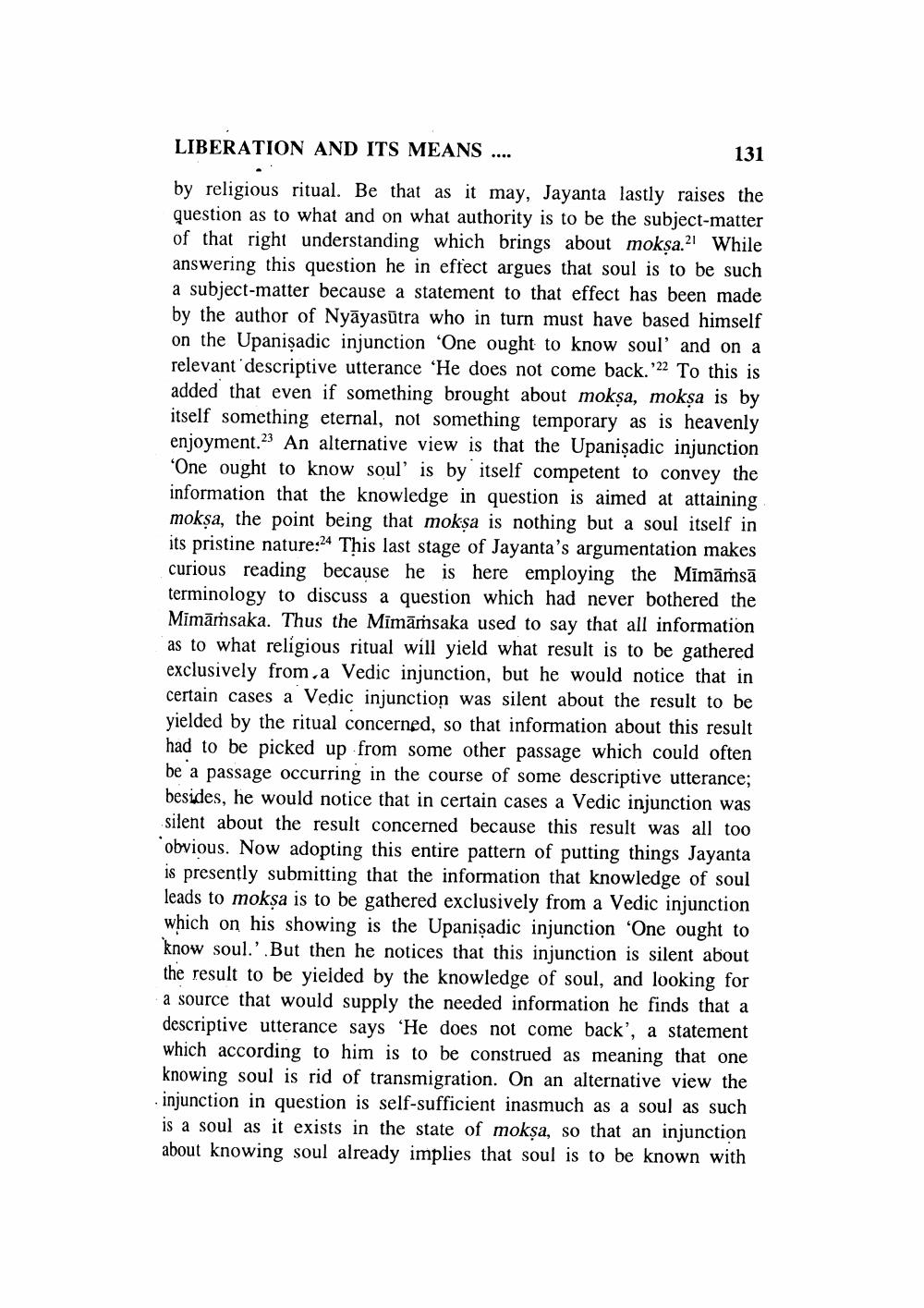________________
LIBERATION AND ITS MEANS ....
131
by religious ritual. Be that as it may, Jayanta lastly raises the question as to what and on what authority is to be the subject-matter of that right understanding which brings about mokşa.21 While answering this question he in effect argues that soul is to be such a subject matter because a statement to that effect has been made by the author of Nyāyasūtra who in turn must have based himself on the Upanişadic injunction 'One ought to know soul' and on a relevant 'descriptive utterance 'He does not come back."22 To this is added that even if something brought about moksa, mokṣa is by itself something eternal, not something temporary as is heavenly enjoyment.23 An alternative view is that the Upanișadic injunction *One ought to know soul' is by itself competent to convey the information that the knowledge in question is aimed at attaining mokşa, the point being that moksa is nothing but a soul itself in its pristine nature:24 This last stage of Jayanta's argumentation makes curious reading because he is here employing the Mīmāṁsā terminology to discuss a question which had never bothered the Mimāṁsaka. Thus the Mimāmsaka used to say that all information as to what religious ritual will yield what result is to be gathered exclusively from a Vedic injunction, but he would notice that in certain cases a Vedic injunction was silent about the result to be yielded by the ritual concerned, so that information about this result had to be picked up from some other passage which could often be a passage occurring in the course of some descriptive utterance; besides, he would notice that in certain cases a Vedic injunction was silent about the result concerned because this result was all too obvious. Now adopting this entire pattern of putting things Jayanta is presently submitting that the information that knowledge of soul leads to moksa is to be gathered exclusively from a Vedic injunction which on his showing is the Upanişadic injunction 'One ought to know soul.' But then he notices that this injunction is silent about the result to be yielded by the knowledge of soul, and looking for a source that would supply the needed information he finds that a descriptive utterance says 'He does not come back', a statement which according to him is to be construed as meaning that one knowing soul is rid of transmigration. On an alternative view the injunction in question is self-sufficient inasmuch as a soul as such is a soul as it exists in the state of mokşa, so that an injunction about knowing soul already implies that soul is to be known with




